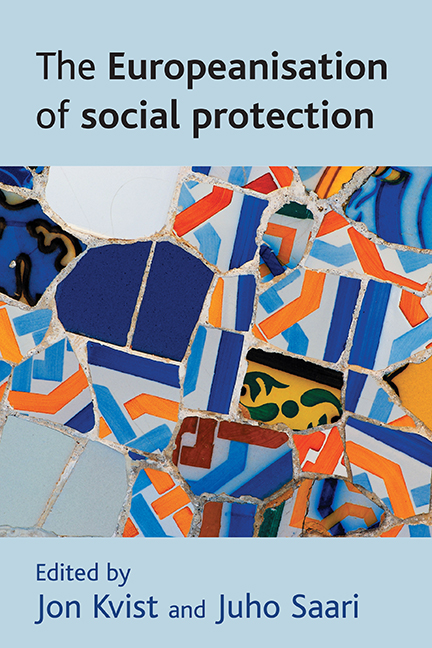Book contents
- Frontmatter
- Contents
- List of tables and figures
- Foreword: The European Union’s evolving social policy and national models – seeking a new balance
- Acknowledgements
- List of abbreviations
- List of contributors
- one European Union developments and national social protection
- two Germany: moving towards Europe but putting national autonomy first
- three The United Kingdom: more an economic than a social European
- four France: defending our model
- five Italy: between indifference, exploitation and the construction of a national interest
- six Poland: redefining social policies
- seven Spain: starting from periphery, becoming centre
- eight The Czech Republic: tradition compatible with modernisation?
- nine Finland: towards more proactive policies
- ten The Netherlands: social and economic normalisation in an era of European Union controversy
- eleven Denmark: from foot dragging to pace setting in European Union social policy
- twelve Greece: the quest for national welfare expansion through more social Europe
- thirteen The Europeanisation of social protection: domestic impacts and national responses
- fourteen Seeking a new balance
- References
- Index
ten - The Netherlands: social and economic normalisation in an era of European Union controversy
Published online by Cambridge University Press: 15 September 2022
- Frontmatter
- Contents
- List of tables and figures
- Foreword: The European Union’s evolving social policy and national models – seeking a new balance
- Acknowledgements
- List of abbreviations
- List of contributors
- one European Union developments and national social protection
- two Germany: moving towards Europe but putting national autonomy first
- three The United Kingdom: more an economic than a social European
- four France: defending our model
- five Italy: between indifference, exploitation and the construction of a national interest
- six Poland: redefining social policies
- seven Spain: starting from periphery, becoming centre
- eight The Czech Republic: tradition compatible with modernisation?
- nine Finland: towards more proactive policies
- ten The Netherlands: social and economic normalisation in an era of European Union controversy
- eleven Denmark: from foot dragging to pace setting in European Union social policy
- twelve Greece: the quest for national welfare expansion through more social Europe
- thirteen The Europeanisation of social protection: domestic impacts and national responses
- fourteen Seeking a new balance
- References
- Index
Summary
In recent years the European integration project has become increasingly controversial in the polarised political landscape of the Netherlands. The legitimacy of engaging in further deepening and broadening of European Union (EU) integration, in the further enlargement of the EU, and in a sensitive constitutional discourse on the EU has become challenged in Dutch society, which has traditionally been supportive of the EU.
Three days after the French rejected the proposal for a Treaty establishing a Constitution for the EU, Dutch voters did the same. How this message should be interpreted is still unclear. Although general support for European integration is still high (although a bit lower than a decade ago), dissatisfaction with the fast pace of enlargement and with the lack of democracy in the EU has increased strongly: in 2004 no EU citizens were more dissatisfied with European democracy than the Dutch (Aarts and van der Kolk, 2005).
The Dutch ‘Nee’ seems to differ from the French ‘Non’. Unlike the French, the Dutch debate on the Constitutional Treaty was less fuelled by a cleavage between protagonists and opponents of competing social models. The Dutch ‘Nee’ seems to express a lack of acceptance of EU policies beyond the specific content of the Treaty or of a concept such as the European social model (ESM). The Dutch ‘Nee’ results from the transformation of the EU (the deepening and broadening of EU integration, enlargement) and of changes in the relationship between Dutch citizens and the democratic political system in general.
Unlike in France, the Netherlands does not see much controversy over current EU socio-economic policies and initiatives as these are clearly not at the centre of the Dutch political debate. The Dutch political elite failed to communicate the European dimension of socioeconomic policies.
Furthermore, the changing character of the Dutch welfare state in the 1990s, from Continental laggard in the 1980s to ‘Dutch Miracle’ in the 1990s (Visser and Hemerijck, 1997), and to a normal European country by the beginning of the 21st century, has inspired the EU socioeconomic reform agenda, which in turn reinforced the direction of the Dutch welfare state in the 1990s: this explains the current lack of controversy in the Netherlands over EU socio-economic policies.
- Type
- Chapter
- Information
- The Europeanisation of Social Protection , pp. 175 - 194Publisher: Bristol University PressPrint publication year: 2007

